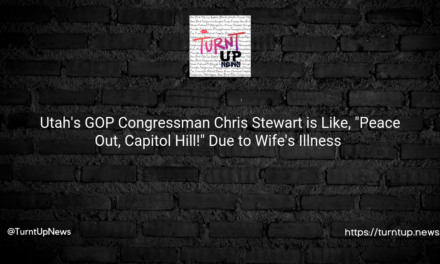🚼✋ South Carolina’s Rockin’ the Cradle: A 6-Week Abortion Ban Passes Senate, Awaits Governor’s John Hancock
TL;DR: 📜👀 In a move that has stirred some serious 🌪️, South Carolina Senate tipped the scales in favor of a 6-week abortion ban. Defying a filibuster by the chamber’s femme fatales, the law made its way to the governor’s table, awaiting his official seal of approval. The legislation could land doctors in some hot water 🌶️ if they violate it, including license suspension, civil lawsuits, and a hefty fine. However, a curveball 🎾 lies in the provision that requires the “biological father” to pay child support from conception. Critics are calling this out as a possible ploy for future “personhood” laws. The bill has both fervent supporters and vocal critics, sparking a debate that’s hotter than a Carolina summer ☀️🔥.
The South Carolina Senate, in a move as controversial as putting mustard on your BBQ, recently gave the green light 🟢 to an abortion ban, making the procedure off-limits after about six weeks of pregnancy. We’re talking just after you’ve broken the news to your friends, assuming you knew at that point! 🤔
This regulation was passed after a lengthy filibuster by the Senate’s leading ladies was overruled. It made it across the finish line with a 27-19 vote, proving that sometimes life, like a Carolina football game, can be an absolute nail-biter 🏈😬.
A glimmer of a silver lining ⛅, or a dangerous loophole 🕳️, depending on where you stand, is the bill’s allowances for exceptions. These include the patient’s life and health, fatal fetal anomalies, and instances of rape or incest up to 12 weeks. However, opponents argue that it’s not enough time, especially for minors who must now navigate the legal labyrinth to get permission from a judge in this period. The clock’s ticking…⏰
Among other eyebrow-raising details is the requirement for the “biological father” to cough up child support from the moment of conception. Critics are worried this could be the doorway to establishing the “personhood” of a fetus and furthering antiabortion laws in the state 🤰🏽➡️👶🏽⁉️
Another major player in this drama is Gov. Henry McMaster, who, quicker than a hiccup, vowed to sign the ban “as soon as possible.” The governor must be a fan of speed-running, but will this have a speed-run effect on people’s lives? 🏃♂️💨💨
This controversial decision led to a backlash from some senators, who argued that the law could worsen South Carolina’s high maternal mortality rates. The situation was aptly summed up by state Sen. Katrina Shealy, who stated, “We are not the morality police, and you cannot be someone else’s conscience.” But aren’t we, though? Don’t laws represent a collective moral compass? 🧭🤔
South Carolina, since the overturning of Roe v. Wade, has become a significant player in the ongoing abortion debate. The state reported approximately 1,000 abortions each month in the first three months of this year, a statistic that has caused friction in both sides of the debate. The question remains: Will South Carolina continue to be a sanctuary for those seeking the procedure, or will it become a leader in the move towards further restrictions? 🌆🛡️🔐
This controversial law will





